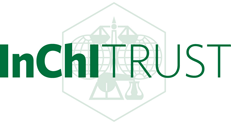Chemistry International, Volume 38, Issue 3-4, Pages 24–26
Abstract
Progress in science has always been driven by data as a primary research output. This is especially true of the data-centric fields of molecular sciences. Scholarly journals in chemistry in the 19th century captured a (probably small) proportion of research data in printed journals, books, and compendia. The curation of this data from its origins in the 1880s and for most of the 20th century was largely driven by a few organisations as a commercial and proprietary activity. The online era, dating from around 1995, saw much experimentation centred around the presentation and delivery of journals, but less so of the data. The latter evolved, almost by accident, into what is now known as electronic supporting or supplemental information (SI), associated with journal articles. [1] That there was still a general problem in science was revealed by the “Climategate” events in 2009, where a lack of access to the data on which climate models are based induced all manner of unfortunate conspiracy theories. [2] These events catalysed a change in policy at, amongst others, UK research funders. One outcome of this change was seen in May 2015 with the introduction of new research data management (RDM) requirements for funded researchers. This centred around the precept that primary research data should be made openly available [3] and coincided with the evolution of the open science tripod of open data, open access articles, and open science notebooks. [4]
| Information | |
|---|---|
| Content Type | OER |
| Author(s) | Henry S. Rzepa, Andrew Mclean, Matthew J. Harvey |
| DOI | 10.1515/ci-2016-3-408 |
| Content Link | https://doi.org/10.1515/ci-2016-3-408 |
| Content Status | publish |
| Date Published | |
| Content Tags | Content type, Publication |

